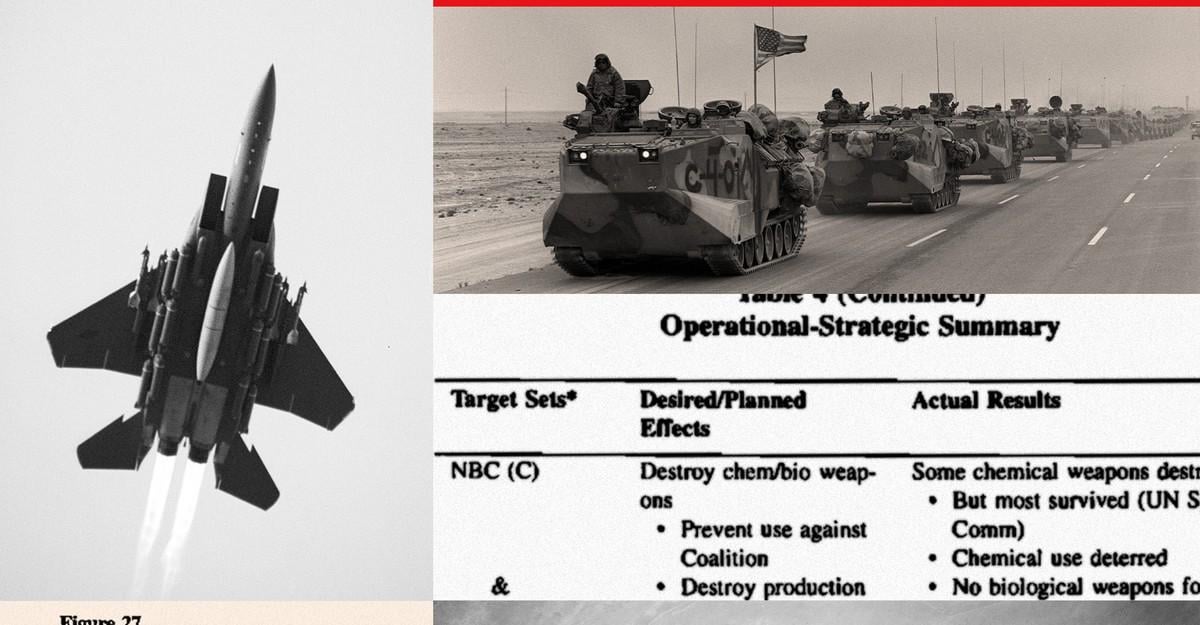
How to Assess the Damage of the Iran Strikes
https://www.theatlantic.com/ideas/archive/2025/06/how-assess-damage-iran-strikes/683370/?utm_source=reddit&utm_campaign=the-atlantic&utm_medium=social&utm_content=edit-promo
Posted by theatlantic


How to Assess the Damage of the Iran Strikes
https://www.theatlantic.com/ideas/archive/2025/06/how-assess-damage-iran-strikes/683370/?utm_source=reddit&utm_campaign=the-atlantic&utm_medium=social&utm_content=edit-promo
Posted by theatlantic
4 comments
Eliot A. Cohen: “In August 1941, the British government received a very unwelcome piece of analysis from an economist named David Miles Bensusan-Butt. A careful review of photographs suggested that the Royal Air Force’s Bomber Command was having trouble hitting targets in Germany and France; in fact, only one in three pilots who claimed to have attacked the targets seemed to have dropped their bombs within five miles of the sites. The Butt report is a landmark in the history of ‘bomb damage assessment,’ or, as we now call it, ‘battle damage assessment.’
“This recondite term has come back into public usage because of the dispute over the effectiveness of the June 22 American bombing of three Iranian nuclear facilities. President Donald Trump said that American bombs had ‘obliterated’ the Iranian nuclear program. A leaked preliminary assessment from the Defense Intelligence Agency on June 24 said that the damage was minimal. Whom to believe? Have the advocates of bombing again overpromised and underdelivered?
“Some history is in order here, informed by a bit of personal experience. From 1991 to 1993 I ran the U.S. Air Force’s study of the first Gulf War. In doing so I learned that BDA rests on three considerations: the munition used, including its accuracy; the aircraft delivering it; and the type of damage or effect created.
“… One has to set aside the sycophantic braggadocio of Secretary of Defense Pete Hegseth, who seems to believe that one unopposed bombing raid is a military achievement on par with D-Day, or the exuberant use of the word obliteration by the president. A cooler, admittedly provisional judgment is that with all their faults, however, the president and his secretary of defense are likely a lot closer to the mark about what happened when the bombs fell than many of their hasty, and not always well-informed, critics.”
Read more:[https://theatln.tc/ZbhZcurS](https://theatln.tc/ZbhZcurS)
IMO this is a great example as a media literacy explainer
Most mainstream sources are accurate in a strict sense. An article might be heavily misleading, but what they actually write is usually true *literally true.
In this case, most people will read the article as “the strikes were ineffective, but it doesn’t actually claim that. (And imo, that is unlikely to be true).
The article claims that sources claimed the DIA assessed them to be relatively ineffective. (Which the DIA essentially confirmed to be true).
But a good question to ask is always, what are the sources NOT saying.
The DIA is one of several agencies that each conduct their own analysis. The briefing the sources received would have included several of them.
So they likely saw at least 10+ (my guess) analysis of the strikes impact and only said 1 analysis determined (with low confidence) the strikes were ineffective.
If multiple analysis had the same conclusion, they would have said so. So a logical conclusion from the report is that most analyses thought the strikes were effective, but one didn’t.
Ironically, what Trump and co. claimed initially was more literally false (they claimed to know things that we don’t actually know with certainty), but was likely directionally closer to the truth.
Edit: for clarity by “the article” I mean the Bertrand article leaking the DIA assessment, not the article linked to the post”
Conclusion: This attack did severe damage to the sites we know about, but doesn’t appear to have damaged any sites which we don’t know about if any such sites exist.
Groundbreaking stuff
The greatest indicator of the truth will be what Israel is saying about a month from now about the situation, once their spies have been able to assess the situation. If they want to resume the bombing campaign, they are unhappy about the damage inflicted. If they are content to let negotiations play out, then they feel they gave themselves enough of a time buffer that there is no immediate danger.
We shouldn’t expect any government involved in this to be honest, regardless of who the leaders are.
Comments are closed.